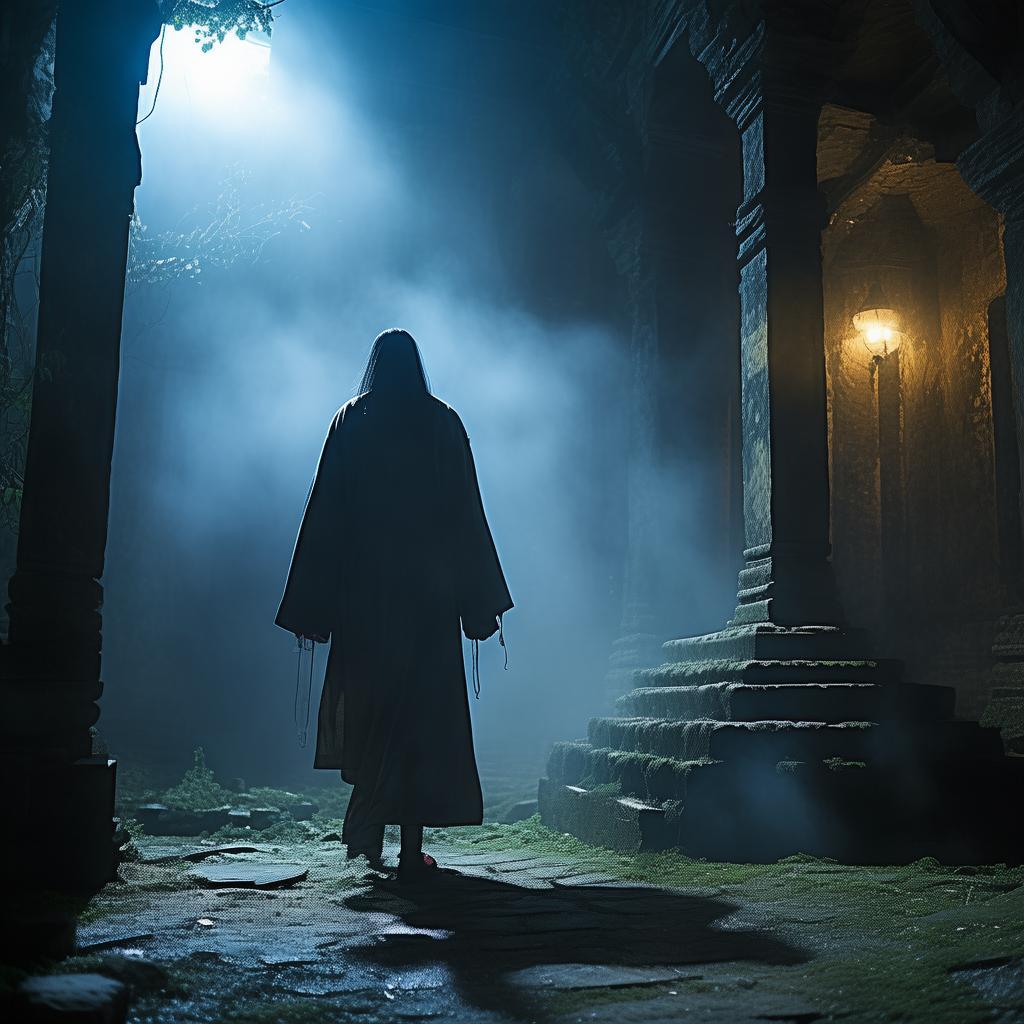The Shadowed Symphony: The Haunting of the Forgotten Opera House
In the heart of an ancient city, where cobblestone streets whispered tales of yore, stood the Opera House of Eternity. Once a beacon of culture and joy, it had fallen into disrepair, its grand halls shrouded in silence and shadows. The city's residents spoke of the opera house in hushed tones, attributing its eerie silence to the spirits of those who had perished within its walls.
One evening, as the moon hung low in the sky, the city was thrown into turmoil. A string of unexplained deaths had begun to occur, each victim a person who had, in some way, been connected to the Opera House of Eternity. The police were baffled, unable to find any trace of foul play or motive. The public was on edge, rumors spreading like wildfire through the narrow alleys and winding streets.
Amidst the chaos, a young musicologist named Elara was determined to uncover the truth. She had spent years studying the history of the opera house, her fascination with its mysterious past deepening with each new discovery. Her father had been one of the last musicians to perform there, and his sudden disappearance years ago had left her with a sense of unfinished business.
Elara's investigation led her to the opera house itself. She had heard whispers of a ghostly orchestra, rumored to play in the dead of night, their music as haunting as the deaths that had followed. With a shiver down her spine, she stepped through the creaking doors, the air thick with dust and the scent of decay.

The opera house was a labyrinth of forgotten splendor, the once ornate decorations now faded and peeling. Elara moved cautiously through the halls, her flashlight casting eerie beams on the walls, which seemed to shift and twist in the dim light. She found herself in a grand auditorium, the stage now a stage for the spirits.
As she reached the back of the auditorium, she heard it—a faint, haunting melody. It was as if the very walls were resonating with a ghostly tune. Elara followed the sound, her heart pounding with a mix of fear and excitement. She emerged into a small room, its walls adorned with portraits of former musicians and performers.
There, in the center of the room, stood a grand piano. The melody grew louder, more haunting, and Elara realized that the music was being played by an unseen hand. She approached the piano, her fingers hovering over the keys, when suddenly, the room darkened, and a figure appeared at the window, a ghostly silhouette against the moonlit sky.
"Leave," the figure whispered, its voice echoing through the room. "The music is not for you."
Elara stepped back, her heart pounding with a mixture of fear and curiosity. She knew then that the music was not just a haunting; it was a call, a message from the spirits of the past. She pressed the keys, and the piano began to play, the sound blending with the haunting melody that had been haunting her dreams.
The room filled with light, and the figure vanished, leaving Elara alone with the piano. She played for hours, her fingers flying over the keys, her mind a whirlwind of questions and answers. When she finished, she knew she had made a connection with the spirits, a connection that could only be broken by the truth.
Elara returned to the opera house each night, her presence becoming a fixture in the once-abandoned building. She uncovered more about the ghostly orchestra, learning that each musician had died tragically, their spirits bound to the opera house by the unfulfilled promise of their final performance.
As the days turned into weeks, Elara's investigation led her to the discovery of a hidden crypt beneath the opera house. There, in the darkness, she found the resting place of the musicians, their graves unmarked and forgotten. It was then that she realized the true extent of the Opera House of Eternity's curse.
The spirits of the musicians had been trapped, their music a beacon that drew those who were soon to meet their end. Elara's playing had broken the spell, allowing the spirits to move on, but at a cost. The opera house, now free of its curse, was left in silence, its grand halls a testament to the power of music and the bond between the living and the dead.
The city began to heal, the Opera House of Eternity once again a place of beauty and culture. Elara, now known as the guardian of the opera house, continued her work, ensuring that the spirits of the musicians were never forgotten. And so, the Opera House of Eternity stood, a silent sentinel, its haunting melody a reminder of the eternal connection between the living and the dead.
✨ Original Statement ✨
All articles published on this website (including but not limited to text, images, videos, and other content) are original or authorized for reposting and are protected by relevant laws. Without the explicit written permission of this website, no individual or organization may copy, modify, repost, or use the content for commercial purposes.
If you need to quote or cooperate, please contact this site for authorization. We reserve the right to pursue legal responsibility for any unauthorized use.
Hereby declared.









